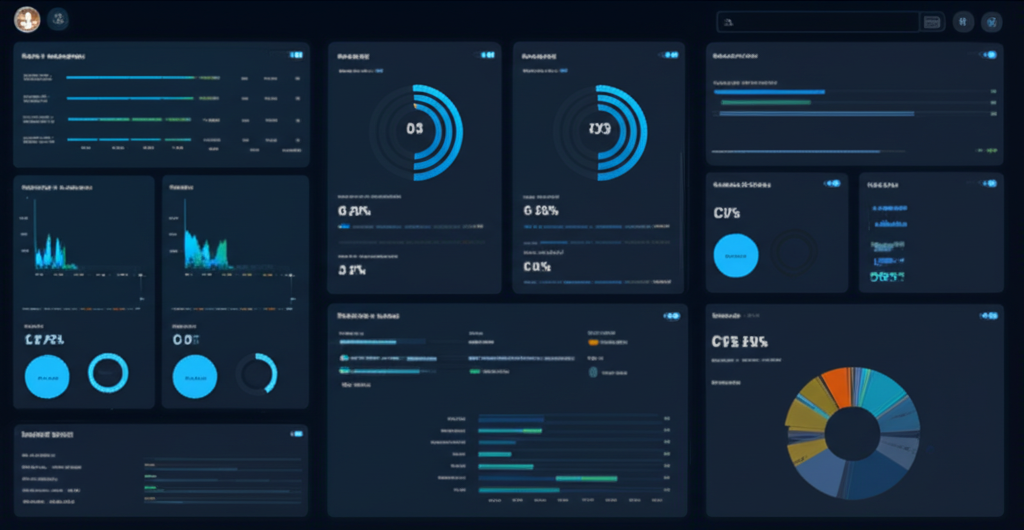Revolutionizing Legal Practice with AI Document Processing
Explore how law firms are transforming contract review, case preparation, and legal research using datakraft's intelligent document processing platform.

The legal profession has always been document-intensive, but the volume and complexity of legal documentation in modern practice has reached unprecedented levels. From contract review to discovery processes, legal research to regulatory compliance, law firms are struggling to manage the sheer volume of documents while maintaining the accuracy and attention to detail that legal practice demands.
AI-powered document processing is transforming how legal professionals work, enabling them to focus on high-value legal analysis while automating routine document processing tasks.
The Legal Documentation Challenge
Legal professionals face unique challenges in document processing:
- Volume and Complexity: Large cases can involve millions of documents requiring review and analysis
- Precision Requirements: Legal documents require absolute accuracy - missing a critical clause can have severe consequences
- Time Pressure: Court deadlines and client demands create intense time pressure for document review
- Cost Management: Manual document review is expensive, often representing 60-70% of litigation costs
- Confidentiality: Legal documents contain highly sensitive information requiring strict security measures
Transformative Applications in Legal Practice
Contract Review and Analysis
A major corporate law firm reduced contract review time by 75% using AI-powered document processing. The system automatically identifies key clauses, flags potential issues, and compares terms against standard templates. Lawyers can now focus on negotiation strategy rather than manual document review.
Discovery and eDiscovery
In litigation, AI document processing can automatically classify documents by relevance, privilege, and responsiveness. This dramatically reduces the time and cost of discovery while improving accuracy and consistency.
Legal Research and Case Preparation
AI can process vast libraries of case law, statutes, and regulations to identify relevant precedents and legal authorities. This enables more comprehensive legal research in a fraction of the time.
Regulatory Compliance
Law firms helping clients navigate complex regulatory environments use AI to process regulatory filings, compliance documents, and government communications to ensure nothing falls through the cracks.
Implementation Best Practices for Law Firms
1. Start with High-Volume, Routine Tasks
Begin with document types that are processed frequently and follow predictable patterns, such as standard contracts or routine filings.
2. Maintain Attorney Oversight
Implement review workflows that ensure attorney oversight of AI-processed documents, especially for critical legal determinations.
3. Ensure Client Confidentiality
All document processing must maintain attorney-client privilege and confidentiality. This requires secure processing environments and strict access controls.
4. Train on Firm-Specific Documents
Customize AI models to understand your firm's specific document types, clause libraries, and legal preferences.
Measuring Success in Legal AI
Law firms implementing AI document processing typically see:
- 60-80% reduction in document review time
- 40-60% cost savings in discovery processes
- 95%+ accuracy in document classification
- Improved client satisfaction due to faster turnaround times
- Enhanced attorney job satisfaction by eliminating tedious tasks
- Better case outcomes through more comprehensive analysis
Ethical Considerations and Professional Responsibility
Legal professionals must consider several ethical implications when implementing AI document processing:
- Competence: Lawyers must understand the AI tools they use and their limitations
- Confidentiality: Client information must be protected throughout the AI processing pipeline
- Supervision: Appropriate oversight of AI-generated work product
- Transparency: Disclosure to clients about the use of AI in their matters
The Future of Legal Technology
The legal profession is moving toward:
- Predictive Analytics: AI that can predict case outcomes and litigation strategies
- Real-time Compliance Monitoring: Continuous monitoring of regulatory changes and their impact
- Automated Brief Generation: AI assistance in drafting legal briefs and memoranda
- Client Self-Service: AI-powered tools that enable clients to handle routine legal tasks
Getting Started with Legal AI
For law firms considering AI document processing:
- Identify Use Cases: Start with specific, high-volume document processing tasks
- Pilot Program: Begin with a small pilot to test effectiveness and build confidence
- Training and Change Management: Invest in training staff and managing the transition
- Measure and Iterate: Track results and continuously improve the implementation
- Scale Strategically: Expand to additional practice areas based on pilot success
Case Study: Large Law Firm Transformation
A 500-attorney international law firm implemented AI document processing across their corporate practice:
- Challenge: Manual review of M&A due diligence documents taking 200+ attorney hours per deal
- Solution: AI-powered document classification and key information extraction
- Results: 70% reduction in review time, 50% cost savings, improved accuracy
- Impact: Attorneys could focus on strategic legal analysis rather than document review
The transformation of legal practice through AI document processing represents a fundamental shift in how legal work is performed. By automating routine tasks, legal professionals can focus on what they do best: providing strategic legal counsel and advocacy for their clients.
Disclaimer: This article presents theoretical applications and case studies for illustrative purposes. Law firms should carefully consider ethical obligations, professional responsibility rules, and client confidentiality requirements when implementing AI document processing solutions.
datakraft Team
Expert in AI-powered document processing and enterprise automation solutions. Passionate about helping organizations transform their document workflows through intelligent technology.


